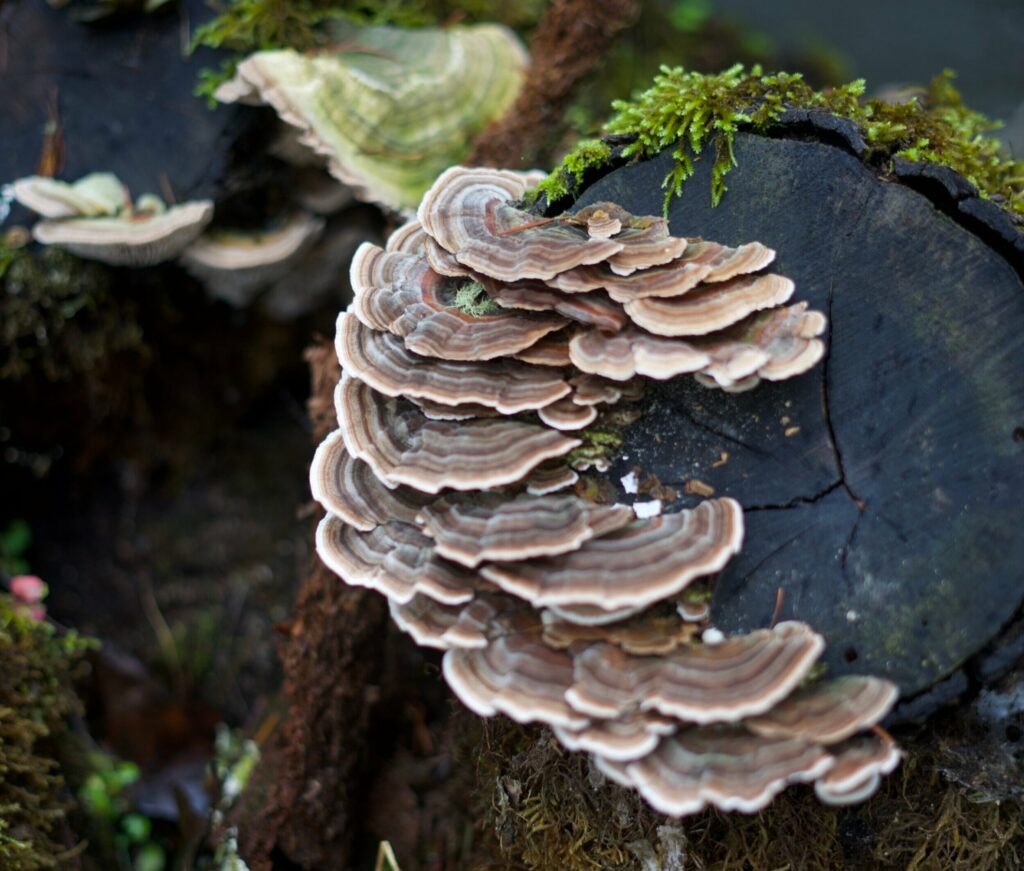WHAT WE DO AS A COMPANY AND INDIVIDUALS – AND WHAT YOU CAN DO AS WELL!
By Karissa Courtney






FIRST, WHY DO IT?
When I think of the hospitality industry, I think of trash. There is so much garbage that goes into the short-term hosting of guests. I see the tiny plastic bottles of shampoo and conditioner that is never enough, I see the Keurig coffee maker, I see the individually plastic wrapped bar hand soaps, I see the white linens, I see the single serving packets of sugar and creamer. These might seem like small things to you, but in the United States 375,000 pounds of plastic are thrown away every year from hotels alone. Those tiny bottles add up. While those numbers aren’t available for short-term rentals (homes and condos), I can imagine that they are almost as high.
Every year, on average, each person in the United States produces about 234 lbs of plastic waste, for all types of trash that number increases to about 2,072 pounds per person. (EPA) The U.S. represents 4% of the world’s population, but produces 12% of municipal solid waste (MSW)—aka trash. Americans recycle just 35% of their MSW, while Germany recycles 68%.
Plastics, made from petroleum, are also an increasingly significant cause of the climate crisis. By 2050, plastics could account for 20% of oil consumption and 15% of the carbon dioxide budget, according to the UN General Assembly. (The Guardian, you can read the rest HERE). 8 million metric tons of plastic enter the ocean every year. Going as low waste as possible ultimately helps the ocean. When we think of all this garbage and plastic, most of it ends up in the ocean. If you haven’t read our post on Ocean Health yet, read it HERE to learn more.

Image taken from the National Oceanic and Atmospheric Administration (NOAA). Read more HERE
SOME NOT-SO-FUN FACTS
- It can take 25 years for a single head of lettuce to decompose in a landfill. WHY? Because landfills have very little oxygen and oxygen is needed to break things down.
- Every week the average person ingests 5 grams of plastic (the equivalent of a credit card), 21 grams in a month, 125 grams in 6 months, 250 grams in a year, and 2.5 kg in 10 years (the equivalent of a regular sized street recycle bin).
- Plastic coated paper cups CANNOT be recycled.
- Some of the worst culprits for micro-plastics are: street paint, tires, and city dust. The next worst is microfibers from washing clothes.

AS A COMPANY
As a company, we have been working towards less waste. We have implemented multiple new ways to do things and are excited for what else we can do in the future.
- Bulk hand soap and hand lotion
- Bulk dishwasher tabs (we love Dropps)
- Bulk hand dishwashing soap
- Bulk laundry detergent
- Reusable shopping bags
- Handmade cleaners – window/glass cleaner and all-purpose
- Dark gray towels instead of whiteThey last so much longer! Less towels that have to be thrown out after each guest.
- We have a basket-style coffee makerKeurigs create a ton of waste since an individual pod is needed for every cup of coffee

AS INDIVIDUALS & OTHER TIPS
Going zero-waste sounds incredibly daunting. Many people think they have to strive to be like the girl who can keep all of her garbage inside a tiny mason jar. However, even if you make some small changes, that is an amazing start and should not be overlooked. If everyone changed something small, it could add up to a huge difference!

- Take your own bags to the grocery store – no more “plastic or paper?”
- No more single-use plastic
- Take your own mug or glassIndulge in your iced coffee from your favorite coffee shop
- Bring Tupperware for your leftovers or take-out
- Don’t bag your produce in plasticEither go without, or bring reusable mesh bags
- If you don’t have bulk shampoo or conditioner nearby, go for a shampoo bar
- Toothpaste: powder or Davids recyclable tube
- Purchase as much as you can in bulkSoaps, detergents, oils, butters, snacks, rice, flours, pastas, teas, spices
- Shop in personWe now live in a time where it feels easier just to order everything online, especially with how easy and fast Amazon is. However, the carbon footprint of shipping and packaging these items that you could easily pick up at the store nearby, is huge. Not to mention all of the garbage that is made to package the items you are ordering.
- Shop second-hand

6. Reusable “paper towels”
Buy some small rags or make your own out of old shirts
7. Bamboo or recycled material toilet paper
8. Ride your bike around town
9. Compostable floss (if you have compost picked up in your area)
10. Use a menstrual cup instead of tampons
Some good brands include Flex and Saalt. You might also consider “period underwear” or washable pads. Of course these aren’t for everyone, but is something to consider.
11. Compost as much as you can
If compost is collected in the area that you live, that’s great. You can include more items since the composting facilities incinerate the items at super high heats. If you don’t have commercial composting in your area, you might consider making a backyard compost bin. Should you do this, some helpful tips:
- Do NOT include meat, cheese, pet droppings, or “compostable” cups. Your bin won’t get hot enough to break these items down and could attract pests and spread disease
- Make sure you include sources of Nitrogen (e.g. grass clippings or “green”) and Carbon (e.g. leaves or “brown”) both
- The plastic rotatable bins work the best since you can easily turn the pile, and make sure you leave it in the sun
First compost it, if it can’t be then recycle, finally if it can’t be composted or recycled put it in the trash.
12. Wash your clothes less – only if actually smelly or dirty
Related to this idea of reducing plastics, is reducing our micro-plastics! This may be a new term to some, but it just means the tiny broken-down pieces of plastic that make it into our oceans, drinking water, and pretty much everywhere else. One way that these tiny pieces make it into our water is through our plastic-based clothing. When we wash our synthetic clothing (e.g. polyester), tiny fibers break out of the clothes and get washed down the drain. The water filtering systems in place don’t filter for these fibers yet, so if we can stop them at the source (the washer) that would be amazing! Some ways you can do this is by washing your clothes less, and using a Guppy Bag. This is a large bag that you put all of your synthetic clothing in when you wash them and it catches about 60% of the fibers that leach out. You can find these bags at REI and Patagonia. If you own a home, you can also purchase a “lint filter” that attaches to your washing machine and catches the plastics. This option is more effective, but if you don’t own your home, then the Guppy Bag is also great.
13. Hang dry your clothes
This is less about plastic waste, and more about energy waste. Dryers use up a ton of energy, arguably the most out of all the appliances in your home. They use 2-6 kilowatt-hours of energy, so each load of laundry can cost between $0.24 and $0.72, depending on your dryer model.
14. Be wary of “green washing”
Keep an eye out for cafes and restaurants that offer compostable cups, silverware, or plates. If they don’t offer composting at their facility, make sure you take those home with you to recycle. Additionally, these items only work in places where compost is accepted (commercially picked up). Also, watch out for “green” words (e.g. biodegradable, all natural, earth friendly), those words have no regulation associated with them, so they cannot be counted on to determine if something can be composted. In order for something to be accepted at a commercial composting facility, it must be BPI certified. Look for this symbol:

15. Buy from beauty brands that have lower waste in mind

Clean beauty brands with less waste that I like:
RMS
Osea
Elate Cosmetics
Origins
Raw Elements
Plaine Products
MOST IMPORTANTLY, USE WHAT YOU HAVE AND BUY LESS.
This list shouldn’t make you go through your home and toss everything plastic, instead it should inspire you to think differently about how you consume and how you could purchase differently in the future when you need new things.
Look into your local waste management and determine if composting and recycling is something that is done in your area. If it is, make sure you look up what they accept for recycling and composting. In the Newport, Oregon area, Dahl Disposal and Thompson’s Sanitary Service are the two waste management companies and they have different guidelines. For example, Thompson’s doesn’t accept compostable packaging (you can read more about it HERE) and Dahl Disposal doesn’t have any sort of composting program. Following guidelines is very important so that contaminants don’t ruin the potential for other items to be recycled.


If you want to see better recycling and composting in your area, encourage active street sweeping programs, fight to regulate washing machines, and CONTACT YOUR REPRESENTATIVES.


